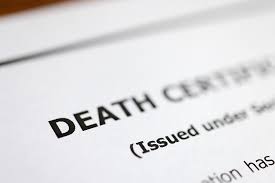A Death Certificate is an official document issued by the government to record the date, time, and cause of death of a person. In Tamil Nadu, it is mandatory to register all deaths under the Registration of Births and Deaths Act, 1969. The certificate serves as proof of death and is required for legal and administrative purposes, such as claiming insurance, settling property inheritance, or applying for family pensions.

Importance of Death Certificate
- Legal Proof of Death: Acts as legal evidence of the person’s death.
- Property Inheritance: Required for transferring assets to legal heirs.
- Insurance Claims: Mandatory for claiming life insurance benefits.
- Pension and Benefits: Needed for claiming pension, gratuity, or other benefits.
- Government Records: Helps in updating government records and canceling identification documents (Aadhaar, PAN, etc.).
Documents Required
- Birth certificate of the deceased.
- An affidavit stating the date and time of death.
- A copy of the ration card.
Death Certificate Application for Death Certificate
A free copy of the death certificate will be provided after verification if the death has been reported within 21 days from the date of occurrence. In case of obtaining a certificate at a later date from the date of occurrence, the applicant has to apply it in a different format with the name of the person, age, date of death, place of death and residential address at the time of death. After submission of this form, an acknowledgement should be acquired. In rural areas, Death Certificate has to be applied in the Taluk Office, within two years of death and subsequently, it has to be applied in the Sub-Registrars office. In Town/ Municipal areas, it has to be applied in the respective Town/ Municipal Office.
TN Death Certificate Application Procedure
Step 1: Registering with Town Panchayat Registration of death to the Town Panchayat officers is necessary after the occurrence of a death.
Step 2: Filling the form The applicant should fill in details of the deceased person in a form given by the Registrar. The applicant should include the following details are:
- Name of the deceased person.
- Age and gender of the person.
- Father’s name or husband’s name of the deceased.
- Details of the place of death.
- Date of death.
- The purpose of the requirement of the certificate.
- Relationship of the applicant with the deceased.
Step 3: Entering the information After the oral reporting of the death to the Registrar, the information will be entered in the appropriate reporting form. These details must be inclusive of a signature or a thumb impression.
Step 4: Furnishing crematorium or burial ground receipt The applicant has to provide the receipt of the crematorium or the burial ground.
Step 5: Issue of Certificate The Registrar then verifies the death of the person, confirming all the details given are genuine. Then the applicant will receive the certificate
FAQs
What is a death certificate?
A death certificate is an official document issued by the government confirming the date, time, place, and cause of death of a person. It is required for legal, financial, and administrative purposes.
Who is responsible for registering a death in Tamil Nadu?
Hospital authorities (if death occurs in a hospital).
Family members or relatives (for home deaths).
Police or local authorities (for accidental or unknown deaths).